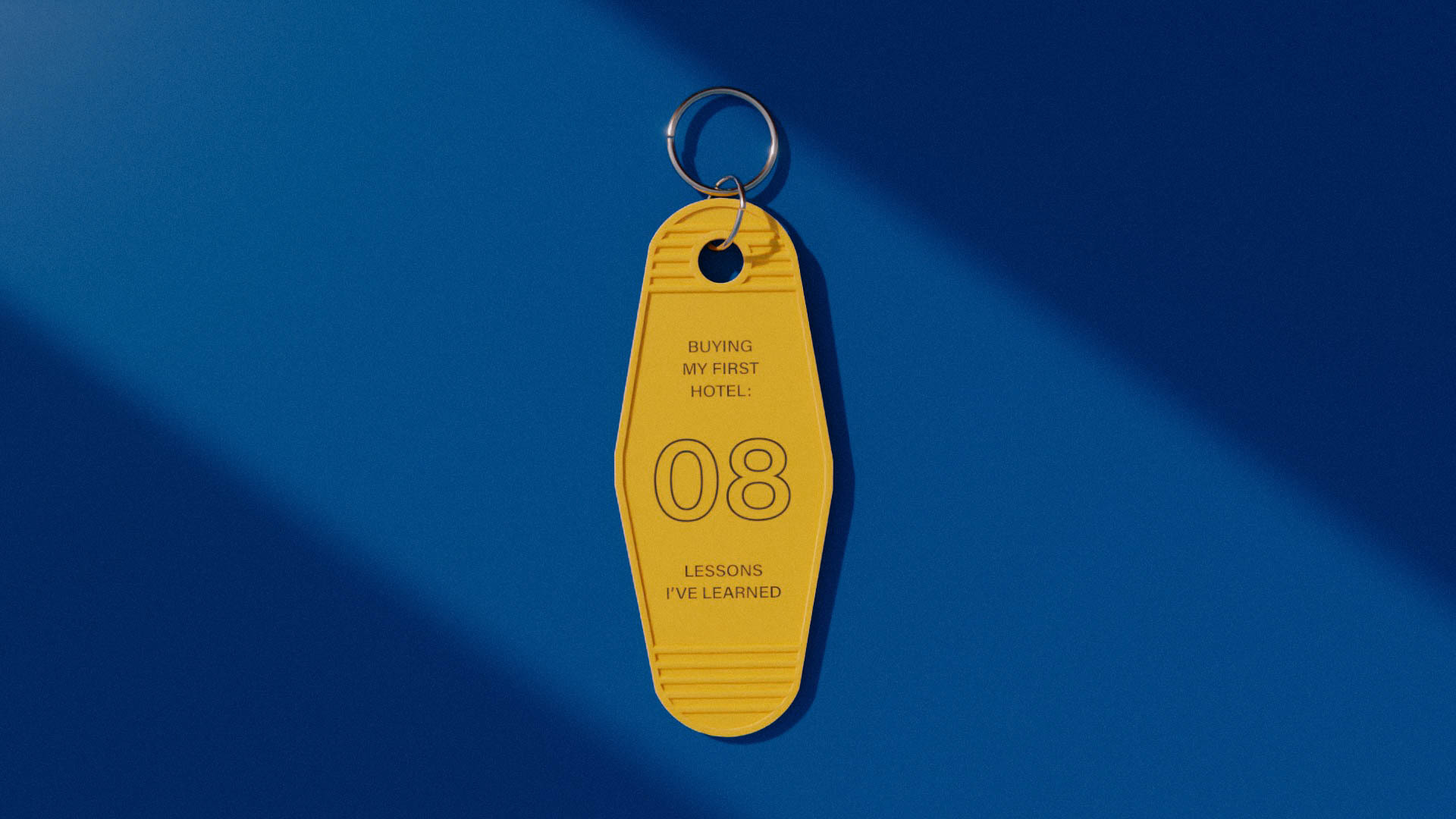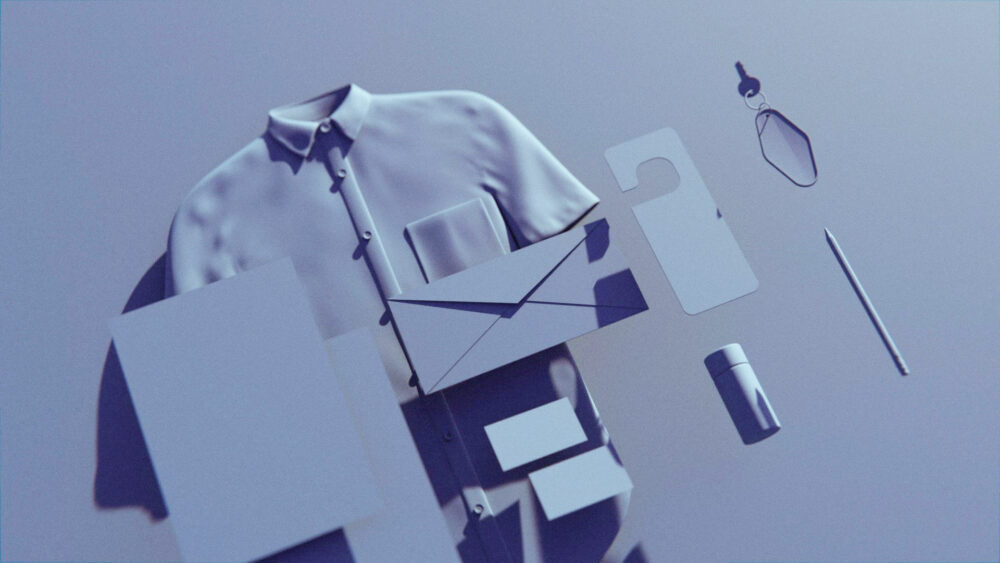I Learned 8 Valuable Lessons from Buying My First Hotel
June 29, 2022
Jeremy Wells
As of June 2022, I have officially (and finally!) become a hotel owner.
Alongside a handful of incredible partners, we’ve acquired a motel in Branson, MO – after nearly eight months of negotiation, due diligence, research, preparation, fundraising, and lots (and lots!) of Zoom meetings. This event was the culmination of two dreams that have been at the forefront of my mind for the last few years; (1) to invest in commercial real estate, (2) to become a hotelier and put into practice the principles that we preach and teach at Longitude°.
The future of this property is exciting, and we still have a lot to accomplish. We’re planning to remodel and reposition the property, elevate the product and service, introduce new programming, activate the brand in a variety of ways, and create some very unique spaces for guests to socialize and create lifelong memories. Ultimately, we want this property to become a polestar or poster child for the new face of travel in the Ozarks region, and make a huge impact in the local community.
In the meantime, I want to document this journey as best I can. A big part of that is sharing the lessons that I have learned along the way; from first discovering the property to closing the deal. Below are eight lessons I learned along the way.
1. Start in Your Own Backyard
You know your own city, region, and neighborhood better than anyone. Consider searching for opportunities in your own backyard. This will also allow you to utilize your existing network of local connections, partnerships, and relationships. Investing in your own region can also instill a strong sense of pride in your efforts to make a difference in your local community – people will see that come through in you.
2. Be Humble
Don’t pretend to know everything, this will only create problems for you. Ask a lot of questions, and learn from people who know more than you. Be prepared to look stupid, and be okay with that. Communicate that from the beginning, and good people will appreciate it. There is a certain level of strength in knowing your weaknesses.
3. Go Out on a Limb
If you’re afraid to put yourself out there, and afraid of someone saying “no”, then you’ll never know what opportunities you’re losing out on. Let other people say “no” – don’t say “no” for them. Reach out to people in your network, people you have relationships with, people you trust. Even if people said “no” before – if the situation or opportunity changes – don’t be afraid to ask again.
4. Take Calculated Risks
Every time that you venture into uncharted territory, something new that you’ve never known – there is a certain level of risk and uncertainty. Don’t shy away from this. Embrace it, feel it fully, and come to terms with it. It’s going to feel uncomfortable at times – very uncomfortable. And yes, people fail sometimes. Define the “worst-case scenario” and then come to terms with that. I thought of the worst-case scenario multiple times throughout this process, and thought to myself, “If that’s really the worst-case… I can live with that.”
5. Go Deeper
When you think you’ve been thorough enough, go just a bit further. When it comes to concepting, brand development, due diligence, project team interviews, market research, etc. Make sure your conclusions and assumptions are solid and be ready to make a strong case for the decisions you’ve come to. Try to avoid saying, “good enough” at any point throughout the process. I’m not suggesting that we should strive for, or expect, perfection, but push a little harder, give it a second look, and take that extra step.
6. Leverage Your Expertise and Background
Realize the value that you’re bringing to the table, and utilize that to its fullest. Everyone comes into a project with a different background and experience. If your expertise is in procurement, leverage that to give your project an advantage during purchasing/construction. If your background is in branding and experience strategy (like me), use that expertise to take the concepting and pre-development visuals and presentations to the next level. If your background is in real estate, use your knowledge and connections to make a good deal and negotiate the best terms possible.
7. Keep Adding Tools to Your “Toolbox”
While I believe it’s a good thing to be an expert in a particular field, it’s also good to have some extra tools in your “professional toolbox”. As I mentioned before, I had a dream of owning commercial real estate and becoming a hotelier, but I didn’t know anything about either! So, over the last few years, I’ve invested my time and money into online learning, various certification classes, and studying countless books and whitepapers. I stayed up late in the evenings to study real estate and eventually got my real estate license. I received certification from a University that covered hotel and hospitality management. Each of these is now a “tool” in my ever-growing toolbox.
8. Show Gratitude
Every single chance you have to show gratitude, do so. Let people know you’re thankful for their insights, opinions, considerations, criticisms, etc. Continually be looking for opportunities to communicate gratitude to your team and anyone along the way. It’s rare (if ever) that our path to success is the result of our own efforts alone. Usually, reaching the summit happens because of the support and help we’ve received from others. Regularly take a few minutes to write an email, send a text, or call someone to express your gratitude.
—
I am by no means a seasoned veteran on the topic of hotel feasibility studies, development, investment, and operations. I understand that I have so much more to learn. As we move forward into the operations and asset management of this property, I know there will be new challenges to overcome, lessons to learn, and opportunities for growth along the way. I’m excited and humbled to have these opportunities, and I don’t take that for granted.
As you proceed further towards achieving your own ambitions and goals, I hope that these lessons may be helpful and encouraging to you. I encourage you to document your own journey and lessons learned – someone needs to hear your story.
Jeremy Wells
Partner at Longitude°
Jeremy is the author of Future Hospitality and Brand Strategist at Longitude°. As a member of the Education Committee for The Boutique & Lifestyle Leaders Association (BLLA) and a content contributor to Cornell University’s Hospitality Vision and Concept Design graduate program, he is a committed thought leader in hotel branding, concepting, and experience strategy.






